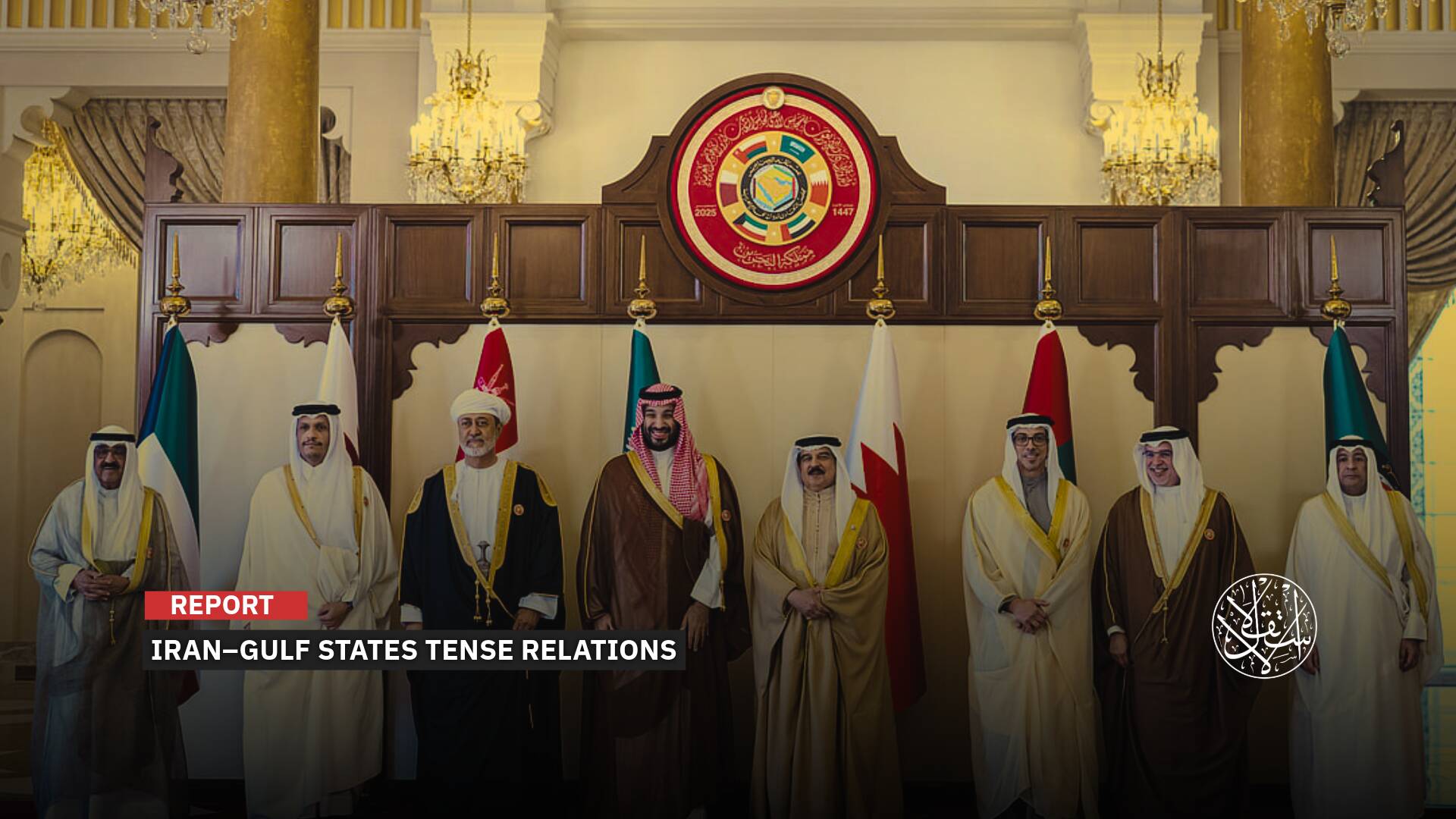The Paradoxes of Justice in Egypt: The Advisor’s Son, the Minister’s Child, and el-Sisi’s Opponents

Is justice in Egypt a matter of fate, or is it bought with a father's influence?
In a country where justice has been reduced to slogans, Egyptian head of the regime Abdel Fattah el-Sisi stood in 2021 marking Judiciary Day, championing his flagship initiative of “swift justice.”
He declared that the slow pace of litigation was unworthy of a state governed by the rule of law, insisting that justice for victims must not be delayed.
Yet, as the years passed, the slogan has become a double-edged sword—wielded fiercely against the general’s opponents, while quietly cutting into the very system that upholds his rule: the military, the police, the judiciary, and the state elite.
At the gates of Egypt’s prisons stands a grieving mother, clinging to hope for any news of her son, a young man who has spent years behind bars without the promise of a fair trial.
Meanwhile, the son of a senior judge smiles casually from the pavement, untouched by the law despite a string of alleged crimes.
And from a self-imposed exile abroad, the son of a former minister announces the release of a book meant to inspire youth — this, while he remains a suspect in one of the most gruesome murder cases in recent memory.
What future awaits a nation where justice is bent to serve the sons of power, while weaponised against the children of political dissent? And what message does this send to a new generation — one that grows up seeing injustice rewarded and truth suppressed?
If this sense of helplessness takes root, and trust in the rule of law continues to erode, how can there be any serious talk of national security or social stability?
The Advisor’s Son
Before the dust had settled on the outrage he sparked years ago, Ahmed — son of Abu el-Magd Abdel Rahman, Deputy Head of the Ismailia Court — had reignited public anger once more.
But this time, it wasn’t with the now-infamous phrase, “Do you know who my father is?” — it was with a baseball bat, in an assault that nearly cost another young man his life.
On May 23, 2025, a violent incident was reported in eastern Cairo. The family of a young man named Youssef Khaled accused the judge’s son and a group of his friends of attacking their son outside a school in Mokattam. The assault, they claim, came without provocation — and with a baseball bat.
The incident ended with a fractured skull, internal bleeding, and a chilling remark reportedly made by one of the attackers as they fled the scene: “He’s dead [… ] run!”
This wasn’t the first time the young man — widely known as the “judge’s son,” or the “traffic boy,”— found himself at the center of a criminal allegation.
Rather, it was a disturbing echo of past behavior, already captured on mobile phone cameras and circulated widely across Egyptian social media back in late 2020.
It was the same boy who, back in 2020, was filmed driving a luxury car without a license, shouting at a police officer in Cairo’s Maadi district and assaulting him with the now-notorious line: “I can have you fired!”
Despite testing positive for drug use at the time, he spent only a few days in juvenile detention before being quietly handed back to his family, after his father, a senior judge, reportedly offered an apology to the Ministry of Interior.
Now, the “judge’s son” returns to the scene of the crime — quite literally. This time, it isn’t just a viral video, but a formal police report and a serious injury backed by medical documentation.
And yet, the outcome was once again predictable: released on bail of just 20,000 Egyptian pounds (around $400), even as the victim remains in hospital, still grappling with the aftermath of the blow.
Is this merely an isolated incident, as some would claim? Or is it yet another example of justice faltering in the face of unchecked privilege?
The silence from the defendant’s family and the absence of any official response from state institutions have only deepened public anger, reviving a painful question that refuses to fade: In Egypt, is justice granted by fate, or bought with a father’s title?
The Minister’s Son
In yet another chapter of Egypt’s class-divided justice, an elegantly dressed woman faced the cameras on May 24, 2025, wearing a sad smile and a broken voice as she spoke of “her son, who didn’t know he had killed,” as she put it.
Then, in a scene that felt almost surreal, she announced that this very son, accused of a double homicide in the United States, is now writing a book about hope, aimed at inspiring young people in Egypt with lessons about life.
It is Nabila Makram, former Minister of Emigration and one of the most prominent faces of the Sisi regime, who has chosen to re-emerge into the public eye, not to apologize, but to promote her son’s cause.
Her son, accused of fatally stabbing two colleagues in California, now faces trial in the United States.
In an interview with broadcaster Riham el-Sahly on the DMC Plus, the minister spoke of her son’s diagnosis with schizophrenia, his therapy sessions, and her attempts to teach him Arabic through the novels of Naguib Mahfouz — as if laying the groundwork for his return to Egypt surrounded by social and cultural support, rather than criminal records.
The irony did not end with her recent public appearance, where she portrayed her son as a “writer bearing wisdom forged through pain.”
It was starkly evident long before, when the crime occurred in April 2022.
At the time, the U.S. police announced the discovery of two stabbed victims in their home in Orange County, California.
The minister’s son was apprehended at the scene, later confessing to the details of the attack amid episodes of psychosis.
Despite this, pro-regime Egyptian media carefully avoided the terms “murderer” or even “accused.”
Instead, they launched a coordinated campaign praising the former Minister of Emigration and highlighting her achievements.
She was then invited onto channels close to the security apparatus, filmed in a carefully orchestrated setting inside her own kitchen, presented as an ordinary Egyptian mother enduring the same struggles as any other.
Voices in the Egyptian streets rose in bitter questioning: if Rami, the minister’s son, had committed this crime in Egypt, would he have faced trial? Or would state institutions have quietly closed the case, opening doors instead to rehabilitation and whitewashing?
American justice has not released Rami, but Egypt’s regime media has worked tirelessly to polish his image, repackaging him as a “humanitarian messenger” who speaks of hope in the aftermath of murder.
Al-Beltagy’s Son
Away from the cameras, talk shows, and polished conferences — and facing the cold walls of prison — Sanaa Abdel Gawad, wife of prominent Muslim Brotherhood figure Mohamed Beltagy, penned a message that stands in stark contrast to the state’s rhetoric about “reforming conditions” or “swift justice.”
On May 18, 2025, she posted a tweet blending pain and resilience after 13 years spent enduring the absence of her imprisoned husband and witnessing her son Anas suffer persecution — all for bearing his father’s name. “My dear husband, my beloved son, and all those detained, may God hold accountable those who have deprived us of you […] 13 years — how did they pass?”
“It is as if the prisons have become your home, and your absence from us and from life has become something ordinary […] What you are enduring is like the melting of gold, refining you in your devotion to God, elevating your souls to greatness.”
“We seek refuge in God, for no oppressed person clings to Him without being saved. These years you have spent wrongfully imprisoned, hour by hour, you gather piety — and those who wronged you carry their burdens, hour by hour,” Abdel Gawad added.
Against the backdrop of the “minister’s son” writing about hope after murder, and the “judge’s son” attacking a young man with a baseball bat only to be released on bail, Anas Beltagy lies in solitary confinement.
For more than a decade, he has been held without trial, without clear charges, without media attention or even the most basic rights afforded to prisoners.
The Beltagy case is far from unique; it is a recurring pattern repeated thousands of times over, affecting the children of political detainees, activists, and independents alike.

Morsi’s Children
No example speaks more loudly than that of the late President Mohamed Morsi, who paid with his life following the July 3, 2013 coup that brought el-Sisi to power, ushering in a prolonged chapter of collective punishment against his family.
On June 17, 2019, Morsi died inside a courtroom after six years of solitary confinement, medical neglect, and deliberate psychological torture.
His family was denied the chance to say farewell, and no funeral befitting a former president was allowed.
Just 80 days later, his youngest son Abdullah followed him in death — a scene that felt like a double burial of the family’s legacy.
But death was not the end of the tragedy; it marked the beginning of a new chapter of persecution.
Days before Abdullah’s passing, the Judges’ Club, through a judicial source quoted on Cairo 24, demanded that Morsi’s heirs pay a one-million-pound fine — compensation to a judge who claimed to have been insulted by the late president.
In March 2014, Abdullah was first arrested in a case described by human rights groups as fabricated, accused of drug use, though he was released just a day later.
Yet the security forces re-arrested him while traveling by train, alleging he was “attempting to evade justice,” marking a new chapter in a deliberate campaign of character assassination.
Osama Morsi, the eldest son and a lawyer, was arrested from his home in December 2016, just days after he called on the United Nations to intervene to halt the abuses against his father.
He was later accused of “violence during the dispersal of Rabaa,” and has since languished in the depths of prison, without a fair trial or media coverage.
Shaimaa Morsi, the president’s daughter, was not spared the unseen punishment.
A pro-regime lawyer filed a lawsuit seeking to revoke her citizenship, alleging she obtained American nationality without state permission.
Thus, the Morsi family became a painful lesson in the inheritance of political punishment, treated not as the family of a former president, but as a symbol to be erased.

Near-Complete Collapse
Commenting on these contradictions, Egyptian human rights lawyer Mostafa Ezzedine Fouad states, “What we are witnessing today in Egypt is not merely individual deviations or isolated judicial exceptions — we are facing an almost total collapse of the justice system.”
He explained to Al-Estiklal that this breakdown “starts from the prosecution and ends at the courts, which have lost their impartiality and become an executive arm of the security apparatus.”
“The idea that someone can escape punishment simply because they are the son of a minister or a judge is increasingly rare anywhere in the world, even in authoritarian regimes,” Fouad continued.
“We have seen in the Gulf the execution of a member of the Saudi royal family, and in Kuwait, members of the ruling family stand trial. But in Egypt, the sons of judges, officers, even artists and footballers continue to evade accountability and indulge in lawlessness.”
“When justice is so distorted, it ceases to be a guarantor of stability and instead becomes a source of chaos,” Fouad added.
“A new generation that sees the oppressor free and the oppressed bound will lose faith in the law. They will no longer expect fairness from judges but will seek justice in the streets, through violence, or revenge. This is the gravest danger — that the state loses its moral legitimacy in the eyes of its own people,” Fouad noted.
Mostafa Ezzedine Fouad invoked the analysis of the sociologist and philosopher Ibn Khaldun in his famous Muqaddimah, explaining, “He said it six centuries ago — a state begins to fall when its judiciary becomes corrupt. Justice is not merely an administrative function; it is the final safeguard for any nation.”
“Today, Egypt is, regrettably, going through the worst judicial phase since its modern inception — perhaps even worse than during the British occupation,” Fouad added.
“Under occupation, repression was exercised by a foreign colonial power, and the people could distinguish between the enemy and the ruler.”
“But today,” he warned, “we face local repression, wielded by a corrupt Egyptian elite from within the system itself. They bear our names and speak our language, yet govern with the logic that the nation is their private property, their own children are untouchable, and the people’s children are mere numbers in the prison queues.”
“When justice collapses, it is not just a political regime that falls — trust disintegrates, and a moral hemorrhage begins that cannot be healed by speeches or grand national projects. This is a critical moment: either the scales of justice are restored, or the country is left to the mercy of chaos and an inevitable explosion,” Fouad concluded.










